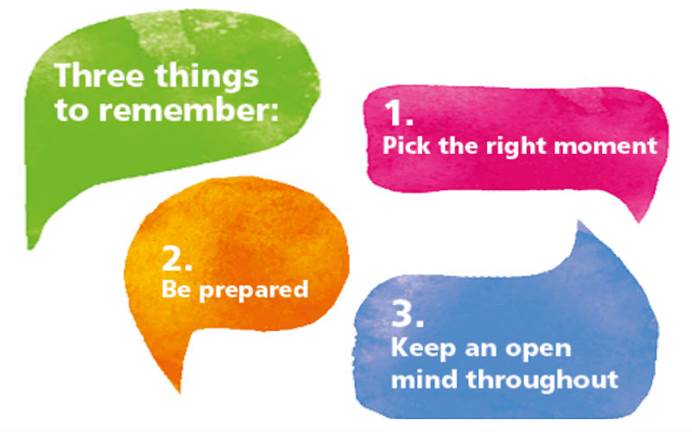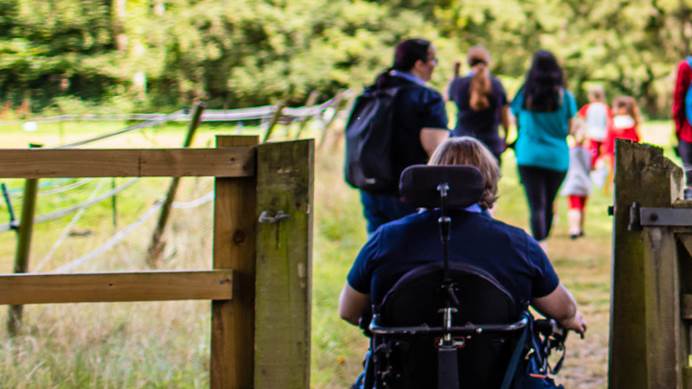How to have tricky conversations
Have you ever had a chat that felt a bit, well, awkward? Here’s some handy advice on speaking and listening effectively from leadership coach Rosalie Puiman
Did you know that the average Brit spends five months of their life talking about the weather?
Here in the UK, we’ve got a bit of a reputation for preferring small talk to serious discussions. And there are lots of reasons why – for example, we’re afraid of being considered rude or we simply want to be liked.
Being involved in guiding can sometimes mean we need to have tricky conversations, but they can be incredibly important, says leadership coach Rosalie Puiman: ‘It took me ages to realise that by avoiding difficult conversations, I wasn’t only selling myself short but also withholding valuable information from others – information that might give them the chance to apologise, clarify something or improve their performance.’
So how can we get through a difficult discussion without fi nding ourselves talking about the rain again?
Bite the bullet
When something feels like it’s going to be hard, our instinct is often to put it off. There will be about a million things we’d rather be doing than having an awkward chat. It’s far better to pretend everything’s fine, isn’t it?
Not always, says Rosalie: ‘There’s this saying: “If you don’t say it, you’ll show it.” People pick up on unexpressed feelings or opinions surprisingly well. And when they do, their view of you could change without you being able to influence it.’
It’s important to take control of the situation yourself: the sooner you have the conversation, the sooner you can clear up any misunderstanding. And it’s often much easier than you might think.
Keep an open mind
You’ve set the date, chosen a suitable location, made sure there’s plenty of time to talk and now you’re probably rehearsing your lines in the mirror.
However, according to Rosalie there is such a thing as being too prepared. Do have a clear objective for the conversation, and an idea of what you want to achieve and what you might say, but the key is to maintain a mindset of inquiry. ‘The very first thing to do is to give up on the belief that you are the only one who’s right!’ Rosalie advises.
Instead, be prepared to ask questions and try to understand the other person’s point of view.
Speak and listen carefully
So you’re ready to listen. But how to make it clear your heart’s in it?
‘Active listening’ is a technique that requires you to concentrate on, understand and remember what’s said, then respond using what you’ve learned.
The other person should feel heard and a big part of that is down to body language: smiling, making eye contact and keeping an open, engaged posture are all important.
For Rosalie, it’s all about being mindful: ‘Be present and give your whole, undivided attention to the conversation.’ When it’s your turn to speak, choose your words carefully: short, simple and relevant. And try to avoid pointing your finger, as it can make the other person feel accused.’

Push through
What if things get a bit heated? Though it’s hard to believe, Rosalie assures us that this is nothing to be afraid of. ‘The best way to deal with emotions is to name them: “I feel sad about what happened” or “I see you’re upset about that.”’ This gives us some time to process our feelings and see them in a more positive light.
You can do the same for awkward silences: they feel horrendous and naturally, you’ll want to fill them with whatever first comes into your head, but try to ride them out. You might find they allow you valuable thinking space.
And afterwards?
The conversation itself is over, but there’s one more thing on Rosalie’s checklist: whether it’s a call, email or text, check in with the other person the next day to see how they’re feeling. Make sure you’re on the same page. And if not, well, it’s always possible to return to the topic. And this time you’ll know exactly what to do.
Talking to your girls
Tricky conversations are part of supporting young people. They’re growing up, exploring and finding their place in the world. We have advice about how to tackle issues that might arise – from tips on staying safe online to guidelines on gender identity, sex and relationships, and peer-education programmes for mental wellbeing and body confidence.
If a girl approaches you with a serious problem, or you’re concerned about someone’s physical, sexual or emotional wellbeing, we’re sure you’ll want to offer appropriate support. Stay calm, listen carefully, ask open questions and offer reassurance, but don’t feel you should have all the answers. Remember you can refer the young person to a relevant support network, or contact your local Commissioner or the Girlguiding Safeguarding Officers for guidance.
Make sure she understands that you cannot keep secrets and that you’ll need to pass on the information to keep her safe. If it’s an emergency, inform the police or social services first, via [email protected] or 0207 834 6242. If in doubt, read our advice about safeguarding and managing risk.
Find out more
To read more advice on how to have tricky conversations in a guiding environment, take a look at our resources for Commissioners.




